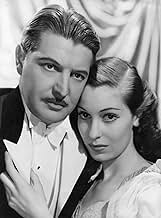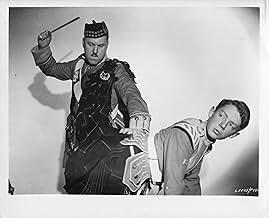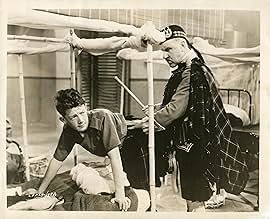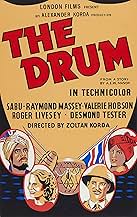From 'Kim' to 'Carry On up the Khyber', from the famous to the infamous (stand up, Harry Flashman!), the North-West Frontier has proved a fertile source of conflict both fictional and historical... and deposed rulers and fiery mullahs have figured largely from that day to this. The plot of 'The Drum' cribs heavily (and at one point openly, with an impudently-inserted piece of dialogue listing the historical parallels that had been niggling at me!) from real-life events, especially in Afghanistan, and as other stories before and since have been based on the same material, this can result in a certain 'seen-it-all-before' sensation. But the winning element in this film is the touch of humanity and humour which helps the characters to become more than cardboard templates, from the drummer-boy and his misfortunes to the wry jests of the newly-appointed British representative walking open-eyed into a trap. Not to mention that, after a spate of films with seemingly pointless titles, I found it obscurely satisfying to encounter one where the eponymous instrument is actually significant both to the plot and its climax!
The always-excellent Sabu steals the film, as ever, in his role first as a self-possessed princeling and then as a fugitive in exile from his throne; the romantic leads, while well-performed, are less memorable. The tension in the banquet scene is tangible, and Raymond Massey as the usurper brings brains as well as menace to his role. The one element that rather shocked me -- with the exception of the inadvertent glimpse of buttock that reveals exactly what Scotsmen do or don't wear under their kilts! -- was the scene in which the said usurper is shot down by our wounded hero in cold blood, having thrown down his weapon. It's not customary for such an act to be depicted in an apparently approving manner; and certainly not in a film of this period...
I must admit that the question of the period itself had me slightly puzzled, although the mention of syncopation in the drum part for the dance should have given me a clue. I had automatically assumed the story to be set in nineteenth-century India in the heyday of the Raj rather than the contemporary world, and with few European civilian fashions on display, there was nothing to disabuse me of this until the heroine made an appearance in jodhpurs, which came as something of a shock! (And the subconscious resonance with the valleys of 'Carry On up the Khyber' turns out to be based in fact: locations from both were shot in Wales...)
But 'The Drum' is a rousing adventure as they used to make 'em, in the tradition of 'Charge of the Light Brigade' or 'Northwest Frontier'; if you like the genre, this one is a cracker.
































